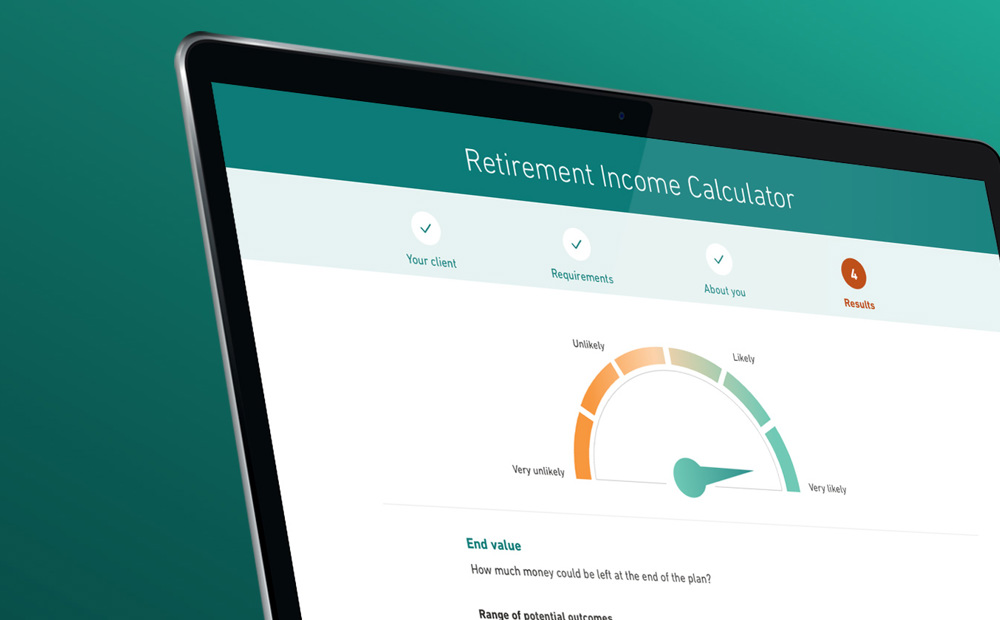
Planning for your longest holiday
We are all terrible at thinking about the future.
I don’t mean we’re bad at thinking about futuristic developments or innovations – that’s possible, and useful, and happens a lot. And I don’t mean clairvoyance and crystal balls – that’s impossible, and a waste of time (but also happens rather a lot).
I’m talking about our ability as humans to think about our own individual future, and then to relate that future to decisions we make in the here and now. The technical term for this is intertemporal choice.
I prefer to think of it as the Problem of Three Bens. There’s Present Ben, Past Ben and Future Ben. They are all the same Ben, but just at different stages in time.
Let’s meet the Bens
Past Ben is set in his ways. He’s the combined total of all the decisions made up to this point in time – I also think of him as “my life so far”. He has a very relaxed existence because he never has to make any decisions. His path is fixed.
Future Ben is the opposite of Past Ben. He’s raw potential, the blend of all the possible decisions I could make and futures I could experience. He also has a very relaxed life. Although his path could go in many directions, he never has to worry about them because he doesn’t have to make any choices.
Present Ben has the rough deal. He’s the one who has to make all the decisions: what to have for lunch, or what to write in an article, or whether to buy a new couch. He has to deal with the situation given to him by Past Ben, and also think about what direction Future Ben might want to go in. And he never gets a day off.
The problem with Present Ben
Present Ben does his best. But he’s got a lot on his plate just getting through the day (especially if Past Ben decided to leave something to the last minute, or was forgetful, or had a bit of a heavy evening). And because he’s constantly running to stand still, he makes a key mistake.
He’s too optimistic about Future Ben. He gives Future Ben all the magic qualities that Present Ben currently lacks – stronger willpower, a healthier approach to life, a better bank balance, more time to think. Once he’s given Future Ben all of those attributes, it then seems much more sensible to leave the hard choices to him too. So Present Ben tends to kick complicated things into the long grass.
Unfortunately, when the time comes to make the tough calls, it turns out Future Ben is nowhere to be found. It’s just Present Ben again, and now the tough call is just another of those things left to him by Past Ben. It’s amazing how often this happens!
The extended holiday you aren’t thinking about
We all have these three individuals running our lives. We all know how easy it is to let the future version of ourselves be the one who doesn’t eat badly, and saves money, and stays in contact with forgotten friends. We all know how easily those commitments get forgotten in all the stress of the present day. There’s always tomorrow, right?
There’s one big choice that is so far ahead for most people that it almost always gets lost in the fuzziness of the future. It’s retirement.
The problem of intertemporal choice is that what’s happening now always looms larger than what might happen in a week. And, what’s happening in a week looms larger than what’s going to happen in a year, or ten years’ time. When we look really far ahead in our own lives, there’s such a fuzzy maze of possibility that it seems irrelevant. Definitely one for Future You.
There’s one big choice that is so far ahead for most people that it almost always gets lost in the fuzziness of the future. It’s retirement. I’m not talking about saving for retirement – I assume that if you’re reading an article by an investment firm, you’re on the right track1… I mean the time you’ve spent thinking about what you’ll do in retirement.
If you’re packing for a holiday (I know, I know, sensitive subject), you’ll spend a fair chunk of time preparing and packing. You plan what you’re going to do in those two sun-kissed weeks (sorry!), plan a few meals, a day trip, where you’ll go in the evening. For once, Present You is making sensible decisions about the time ahead.
Although I know nothing about the Present You who’s reading this, I bet I know one thing. In any given year you spend more time thinking about what you’ll do on your two week holiday than you do thinking about what you’ll do in your retirement – which could easily last for 20 years or more. It’s certainly true of Present Ben.
How to help
We think a lot about our working lives and the short breaks from them; and think all too little about what we’ll do afterwards. Obsessing over the future isn’t healthy – but with a little effort from time to time, we can make sure we’re well prepared for the long term, especially when we’re no longer working.
One powerful way to make Present You think about the road ahead is to focus on certain sections of the road. Rather than think in a vague way about “retirement”, make the picture more realistic, more concrete2:
- You’ve just retired. What are you going to do on your first day?
- What would Future You would like to do the first week after you stop working?
- How would you like to spend the first Christmas after retiring? How about the first summer?
- Imagine it’s five years since you’ve retired. What have you been up to? What is making your life worthwhile?
Once your aims are clearer, it’s easier to find the right way to achieve them.
In financial terms, that means having a solid financial plan, and then choosing an investment manager who thinks about the long term in everything they do.
The sooner Present You can spend a little bit of time getting that sorted, the sooner they can get back to thinking about the possibility of a post-COVID holiday.
1 Although in wider society it is a huge problem, since Present Governments have been passing the buck to Future Governments for decades... https://www.unbiased.co.uk/news/financial-adviser/one-in-six-over-55s-have-no-pension-savings-yet
2 This has been scientifically tested: Hershfield H. E. (2011). Future self-continuity: how conceptions of the future self transform intertemporal choice. Annals of the New York Academy of Sciences, 1235, 30–43. https://www.ncbi.nlm.nih.gov/pmc/articles/PMC3764505/



I confirm that I am a Financial Adviser, Solicitor or Accountant and authorised to conduct investment business.
If you do not meet this criteria then you must leave the website or select an appropriate audience.

